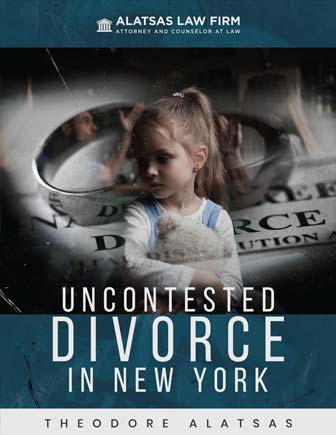To some New York citizens, trusts are only useful for rich people who want to avoid taxes. While trusts do help protect personal assets and make sure people do not overpay in taxes, they can be useful for people of all income levels. Those who want to protect their property and qualify for medical services can do so by creating an asset protection trust.
However, estate planning is complicated. There are many different kinds of trusts to choose from, and trying to navigate through all these choices on your own can be time-consuming. Plus, it can be confusing to understand all the terminology involved. However, with the right legal help, you can get the protection you need.

Revocable Living Trusts vs. Irrevocable Trusts
First, it is important to distinguish between the two main types of trusts – revocable and irrevocable. A revocable trust is one that can be changed at any time. You can use an amendment to make changes to the assets or beneficiary. You can even revoke it altogether. A revocable trust allows an estate to avoid probate, which protects the privacy of your assets. It can also help you plan for mental disability.
An irrevocable trust, on the other hand, can not be amended. Once you form the trust, fund it, and sign it, it is out of your hands forever. Therefore, you should be sure about it before you sign off. An irrevocable trust is a handy tool for asset protection. It can keep assets away from creditors. It can help you avoid taxes and can also assist with Medicaid planning.
What Asset Protection Trusts can do
Asset protection trusts allow you to transfer money and assets to a trustee, who manages everything in the trust. The assets in the trust are now owned by someone else, which means that creditors legally cannot seize them from you.
An asset protection trust can also help with Medicaid planning. Many older people are in limbo when it comes to finances. They make too much money to qualify for Medicaid but can not pay for long-term care costs on their own.
However, they can qualify for Medicaid with help from a trust. To qualify for Medicaid, a person’s income must be under $2,205 per month. So, if you are making more than this amount, you can transfer some assets into a trust.
This requires advance planning. You may have to do this year in advance, so if you expect you may need long-term care down the road, the sooner, the better. Also, the person who creates this trust cannot also be the trustee, so someone outside of the household will have to be named as the trustee. The trustee will then have control of the assets.
Contact an Estate Planning Lawyer Today
There are different kinds of trusts available, so be sure to pick one that best fits your needs. If your concerns are creditors or future health care, for example, then you want a trust that will help you accomplish these goals.
A trust can be a valuable tool for anyone of any income level. Brooklyn estate planning lawyer Theodore Alatsas ESQ can assess your situation and help you choose the right trust. He will help you avoid costly mistakes. Schedule a consultation by contacting us at (718) 233-2903.







